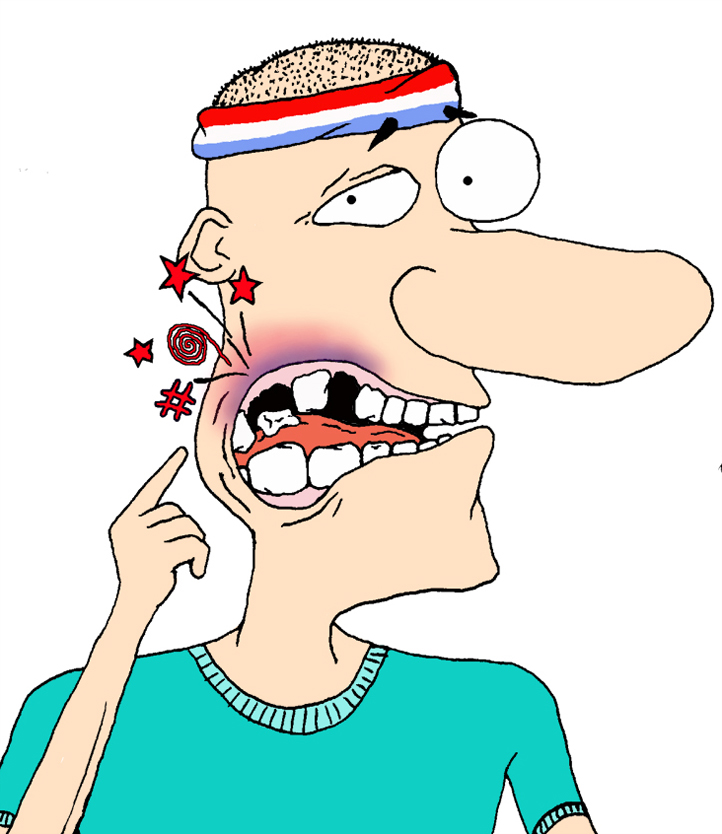12+ Pregnancy Toothache Tips For Fast Relief

Experiencing a toothache during pregnancy can be an unsettling and painful ordeal. Not only does it affect your oral health, but it also raises concerns about the safety of treatments and medications during this critical period. Pregnancy hormones can lead to increased blood flow and changes in the mouth, potentially exacerbating toothache issues. It’s essential to understand that while some remedies might be off-limits due to pregnancy, there are still several strategies and tips that can provide fast relief from toothache pain without compromising the health of the mother or the baby.
Understanding Pregnancy and Toothaches
Before diving into the relief tips, it’s crucial to understand why toothaches might be more prevalent or pronounced during pregnancy. Hormonal changes can affect the gums, making them more susceptible to swelling and sensitivity. Moreover, the increased acidity in the mouth, partly due to morning sickness, can erode tooth enamel, leading to pain. Additionally, pregnant women might experience cravings that lead to more frequent consumption of sugars and acids, further increasing the risk of dental issues.
12+ Tips for Fast Relief
Rinse with Salt Water: Mixing 1⁄2 teaspoon of salt with 8 ounces of warm water creates a natural antibacterial mouthwash. Rinsing with this solution can reduce swelling and ease pain.
Cold Compress: Applying a cold, damp washcloth to the cheek near the aching tooth can help numb the pain. The cold temperature constricts the blood vessels, reducing pain and swelling.
Clove Oil: Known for its analgesic properties, clove oil can be applied directly to the tooth with a cotton swab. However, it’s crucial to dilute it with a carrier oil (like coconut or olive oil) to avoid irritation.
Over-the-Counter Pain Relievers: While it’s essential to consult a healthcare provider before taking any medication during pregnancy, acetaminophen (Tylenol) is generally considered safe in recommended doses. However, ibuprofen (Advil, Motrin) and aspirin should be avoided, especially in the third trimester.
Dental Care: Maintain good oral hygiene by brushing your teeth at least twice a day and flossing once a day. This can prevent the accumulation of bacteria and food particles that might exacerbate toothache pain.
Desensitizing Toothpaste: Using toothpaste designed for sensitive teeth can help alleviate pain, especially if the toothache is caused by receding gums or enamel erosion.
Avoid Trigger Foods: If your toothache is sensitive to temperature, avoid consuming extremely hot or cold foods and beverages. Also, limit sugary and acidic foods that can further irritate the tooth.
Hydrogen Peroxide Mouthwash: A weak solution of hydrogen peroxide (3%) can help reduce plaque and bacteria. However, always dilute it with water (50⁄50) to avoid irritating your gums.
Topical Anesthetics: Benzocaine products can numb the area, providing temporary relief. However, they should be used sparingly and only under the guidance of a dentist or healthcare provider.
Visit Your Dentist: If your toothache persists or worsens, it’s crucial to visit your dentist. They can diagnose the cause of your toothache and provide appropriate treatment, which might include a filling, extraction, or another procedure.
Maintain a Healthy Diet: Focus on consuming a balanced diet rich in fruits, vegetables, whole grains, and lean proteins. A healthy diet supports overall health, including oral health.
Stay Hydrated: Drinking plenty of water helps keep your mouth moist, reducing the risk of tooth decay and alleviating dry mouth, which can exacerbate toothache pain.
Additional Considerations
- Prenatal Care: Include your dental health in your prenatal care routine. Inform your healthcare provider about any dental issues or concerns.
- Emergency Visits: If you experience severe toothache pain, facial swelling, or fever, consider it a dental emergency and seek immediate care.
- Prevention: Regular dental check-ups and good oral hygiene practices can prevent many toothache issues.
Conclusion
While toothaches during pregnancy can be distressing, there are numerous strategies for managing and alleviating the pain. It’s vital to prioritize dental health throughout pregnancy, not just for the mother’s comfort but also for the well-being of the baby. By understanding the causes of toothaches and employing these relief tips, pregnant women can better navigate dental discomfort and ensure a healthy pregnancy.
FAQ Section
Can I safely use pain relievers for a toothache during pregnancy?
+Always consult your healthcare provider before taking any medication. Generally, acetaminophen is considered safe, but it’s essential to follow the recommended dosage and consult your provider, especially if you’re in your third trimester.
How often should I visit my dentist during pregnancy?
+Regular dental check-ups are crucial during pregnancy. Typically, a visit to your dentist at the beginning of your second trimester is recommended, but this may vary based on your specific oral health needs and your dentist’s advice.
